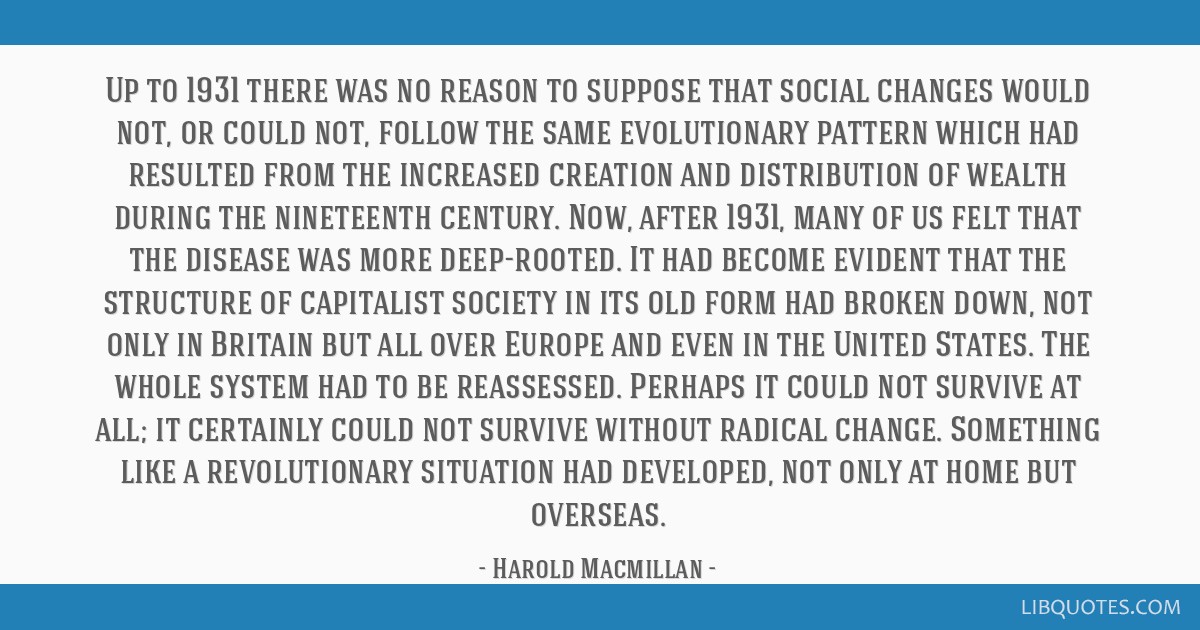Up to 1931 there was no reason to suppose that social changes would not, or could not, follow the same evolutionary pattern which had resulted from the increased creation and distribution of wealth during the nineteenth century. Now, after 1931, many of us felt that the disease was more deep-rooted. It had become evident that the structure of capitalist society in its old form had broken down, not only in Britain but all over Europe and even in the United States. The whole system had to be reassessed. Perhaps it could not survive at all; it certainly could not survive without radical change. Something like a revolutionary situation had developed, not only at home but overseas.
Harold Macmillan (1966) Winds of change, 1914-1939. p. 266 as cited in Brian Vickery (2005) "Coming of age in the 1930s" (online at archive.org)























